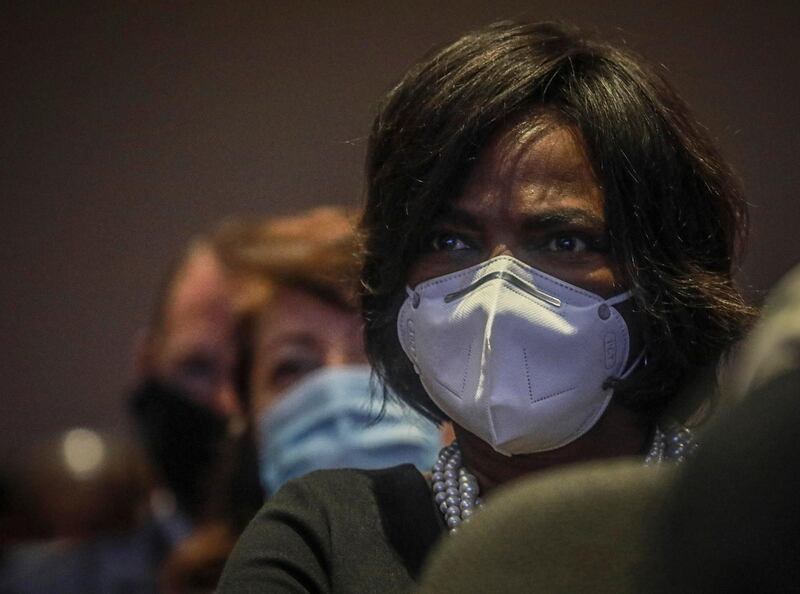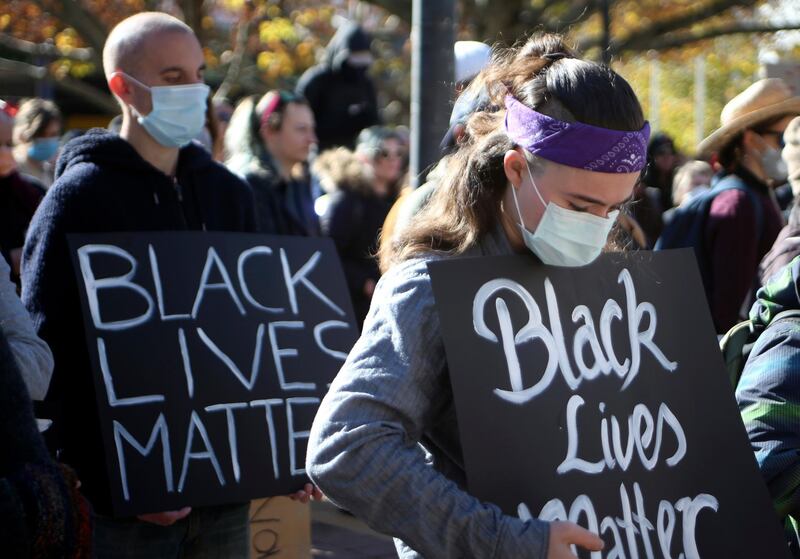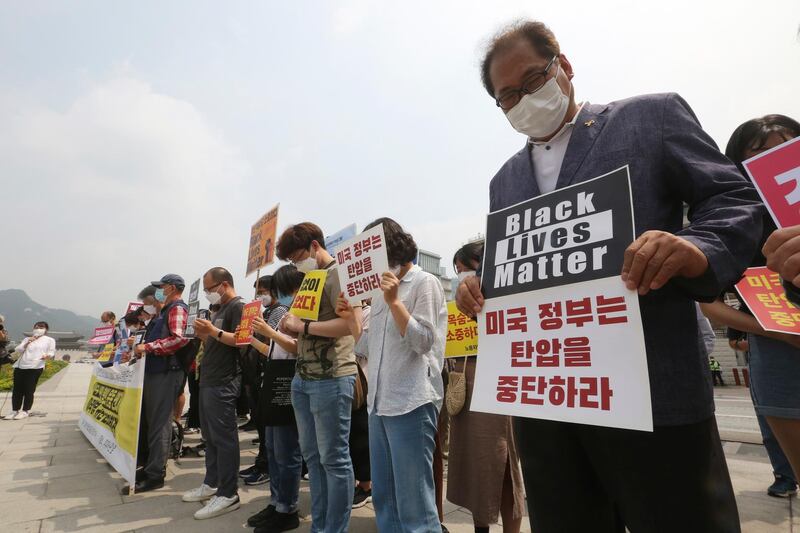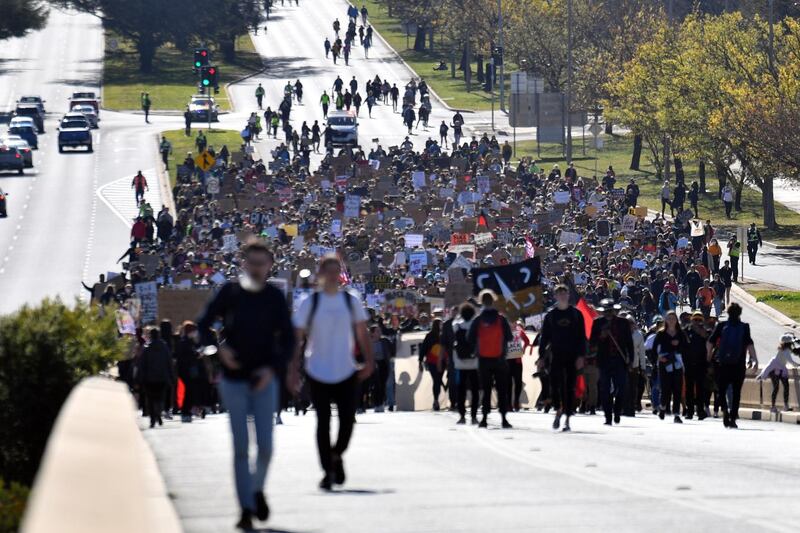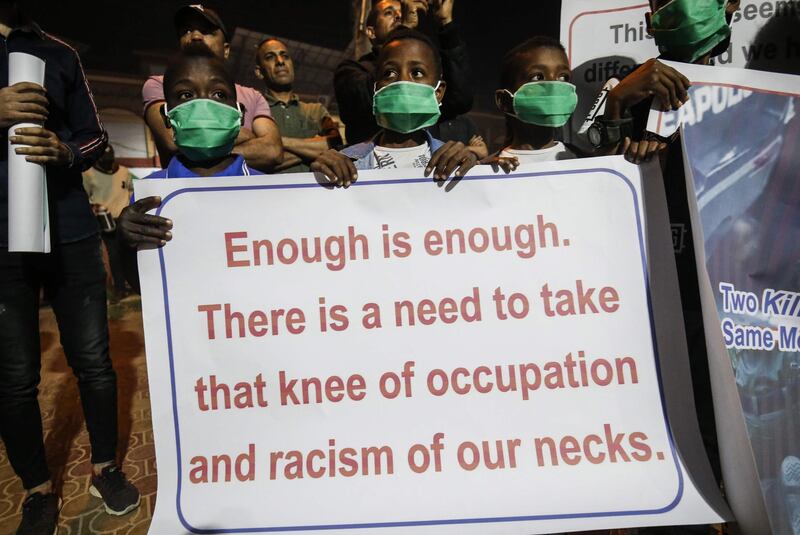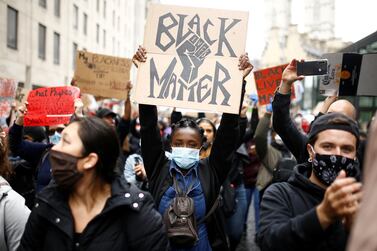Democrats led by black members of the US Congress are set to introduce legislation to fight police violence and racial injustice, including making it easier to sue officers who kill.
Their announcement comes two weeks after George Floyd's death in Minneapolis police custody sparked nationwide protests and rallies around the world.
The Congressional Black Caucus, with more than 50 Democratic members in the House of Representatives and Senate, will lead Monday's unveiling of the new legislation.
It is expected to ban police choke-holds and racial discrimination, require nationwide use of body cameras, subject police to civilian review boards and impose new protocols limiting lethal force.
It will also require officers to intervene when they see misconduct.
The legislation, which is expected to establish a national database to record acts of police misconduct, is backed by senior Democrats including House Speaker Nancy Pelosi and Senate leader Chuck Schumer.
Congressional sources say the legislation is expected to abolish the legal doctrine known as qualified immunity, which protects police from civil litigation.
Before the legislation is introduced, peaceful protests against police brutality have marched on.
Saturday's marches featured few reports of problems in scenes that were often more festive than tense.
The authorities did not immediately release crowd size estimates, but it was clear that tens of thousands of people, and maybe hundreds of thousands, turned out nationally.
Wearing masks and calling for fundamental change, protesters gathered in dozens of places from coast to coast.
Mourners in North Carolina waited for hours to glimpse the coffin carrying the body of Floyd, the black man whose death at the hands of Minneapolis police galvanised the growing movement.
Collectively, it was the biggest one-day crowd since his death on May 25 and came as many cities lifted curfews imposed after arson, assaults and looting.
The authorities have softened restrictions as the number of arrests plummeted.
Demonstrations also reached four other continents, ending in clashes in London and Marseille, France.
In the US, Seattle police used flash-bang devices and pepper spray to disperse protesters hurling rocks, bottles and what the authorities said were "improvised explosives" that injured officers.
A day earlier, city leaders temporarily banned one kind of tear gas.
The largest US demonstration was in Washington, where protesters thronged streets that were closed to traffic.
On a hot, humid day, they gathered at the Capitol, on the National Mall and in other neighbourhoods.
Some turned junctions into dance floors. Tents held snacks and water.
In Richmond, Virginia, the former capital of the Confederacy, protesters toppled a statue of Gen Williams Carter Wickham from its pedestal.
The Richmond Times-Dispatch reported that most demonstrators had already dispersed when a rope was tied around the statue, which has stood since 1891 in Richmond's Monroe Park.
In 2017, some of Wickham's descendants urged the city to remove the statue.
A Richmond police spokeswoman did not know if there were any arrests or the extent of any damage.
Confederate monuments are a controversial topic in Virginia.
Last week, Governor Ralph Northam said a state-owned statue of former Confederate commander Gen Robert E Lee would be removed from the city's Monument Avenue "as soon as possible".
